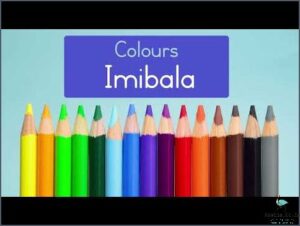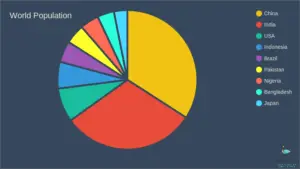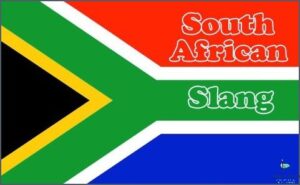
South African Slang is a unique form of language used in South Africa, that is heavily influenced by the various languages and cultures present in the country. It is composed of words, phrases, and expressions that are commonly used in the streets, and often used to refer to things or people in a humorous or sarcastic manner. South African slang has evolved over the years and has become an integral part of the South African culture. It is often used to express feelings, emotions, and thoughts in a more creative and fun way. South African slang has many different variations and can be heard in different dialects and accents. It is also heavily influenced by other African languages, as well as English, Afrikaans, and other languages. South African slang is an exciting and vibrant way to communicate, and can be used to add a unique flair to conversations.
Contents
South African Slang
South African slang is an interesting and unique way of expressing oneself. It is a reflection of the diverse culture and language of South Africa, and varies from region to region. The most popular South African slang terms include ‘bru’, ‘lekker’, ‘now now’, ‘sharp sharp’, ‘just now’ and ‘howzit’. ‘Bru’ is an informal term of address, while ‘lekker’ is used to describe something that is good or enjoyable. ‘Now now’ is used to express impatience, ‘sharp sharp’ is used to express urgency, and ‘just now’ is used to indicate something that will happen soon. Lastly, ‘howzit’ is a friendly way of asking someone how they are doing. Understanding South African slang is an important part of communicating with locals and engaging in the South African culture.
Origins of South African Slang
South African slang is as diverse and colorful as the nation itself. It is a unique and creative blend of English, Afrikaans, and other African languages, with a few foreign words thrown in for good measure. This vibrant mix of languages and cultures has created a complex and fascinating language that is used daily by South Africans of all backgrounds.
The origins of South African slang are as varied as the nation itself. It is believed that the earliest forms of slang were developed by the Khoikhoi and San peoples of the Western Cape, who used a mixture of clicks and grunts to communicate. This was later adopted by the Dutch settlers, who incorporated words from their own language into the mix.
The English language has had a great influence on South African slang. The British colonizers introduced their own language and customs to the region, which were later adopted by the locals. This led to the development of a distinct English-based dialect known as ‘Cape Flats English’, which is still widely used today.
Afrikaans, the language of the Dutch-descended Afrikaners, has also had a profound impact on South African slang. Many words from the Afrikaans language have been incorporated into the slang, such as ‘braai’ (barbecue), ‘lekker’ (nice) and ‘skollie’ (thief).
Other African languages have also left their mark on South African slang. Words from languages such as Zulu, Xhosa and Sotho have been incorporated into the language, giving it an even more unique flavor.
Finally, there are a few foreign words that have been adopted by South African slang. These are mostly words from American English, such as ‘bling’ and ‘chillax’.
South African slang is a fascinating and ever-evolving language. Its unique blend of English, Afrikaans, and other African languages has given rise to a vibrant and colorful language that is used by people of all backgrounds. Its origins are diverse and complex, but it is a language that binds South Africans together and is a source of pride for many.
Different Types of South African Slang
South African slang has been around for centuries and is a vibrant and colorful language that reflects the cultural and linguistic diversity of the country. In addition to English and Afrikaans, there are many other languages spoken throughout South Africa, and each of these has its own unique slang. From the vibrant and expressive slang of Cape Town to the more laid back slang of Durban, South African slang can be quite a challenge to understand. Here we take a look at some of the different types of South African slang and their meanings.
The most popular type of South African slang is known as Tsotsitaal. This is a type of Afrikaans slang that is used in the townships of South Africa. It is a mix of English, Afrikaans, and other African languages, and it is often used as a code language to hide the meaning of what is being said from outsiders. Common Tsotsitaal words include “shisa” (cigarette), “boetie” (friend), and “shebeen” (illegal drinking establishment).
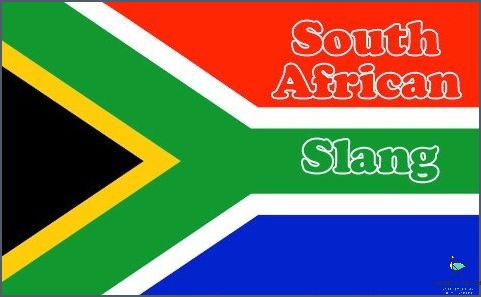
The second type of South African slang is known as Cape Flats, or Kaapse Klop. This is a type of slang that is spoken by the people of the Cape Flats, which is the name for the suburbs of Cape Town. This type of slang has a lot of influence from Afrikaans and English, and it is often used to express a sense of belonging and pride among the people of the Cape Flats. Common Cape Flats words include “lekker” (cool or great), “jol” (party), and “dop” (alcoholic drink).
The third type of South African slang is known as IsiZulu or IsiZulu-English. This is a type of slang that is spoken in the townships of KwaZulu-Natal, which is the northernmost province of South Africa. IsiZulu slang is a mix of IsiZulu, English, and Afrikaans, and it is used to express a sense of identity and pride among the Zulu people. Common IsiZulu words include “khaya” (home), “mntwana” (boy), and “khanda” (friend).
Finally, the fourth type of South African slang is known as IsiXhosa or IsiXhosa-English. This is a type of slang that is spoken in the townships of the Eastern Cape, which is the second largest province of South Africa. IsiXhosa slang is a mix of IsiXhosa, English, and Afrikaans, and it is used to express a sense of identity and pride among the Xhosa people. Common IsiXhosa words include “buntu” (friend), “mfundisi” (teacher), and “thandeka” (beautiful).
South African slang is a vibrant and colorful language that reflects the cultural and linguistic diversity of the country. From the expressive slang of Cape Town to the laid back slang of Durban, South African slang can be quite a challenge to understand. However, with a bit of knowledge and practice, you can soon start to understand and even use the different types of South African slang.
Examples of Commonly Used South African Slang Terms
South African slang is a unique blend of languages and cultures, resulting in a vibrant, colorful, and often humorous language. With its roots in Afrikaans, English, Zulu, and various other African languages, South African slang is used by all ages and social classes, from the youth of the townships to the businesspeople of the cities.
From the playful and whimsical to the downright outrageous, here are some examples of commonly used South African slang terms:
1. “Abo” – This term is used to refer to a person of African descent. It is considered offensive and should be avoided.
2. “Ag man” – Used to express surprise, disbelief, or to express agreement.
3. “Bliksem” – To hit or strike someone or something.
4. “Braai” – A barbecue or cookout.
5. “Bru” – A friend or buddy.
6. “Fokol” – Nothing or none.
7. “Gatvol” – Extremely annoyed or fed up.
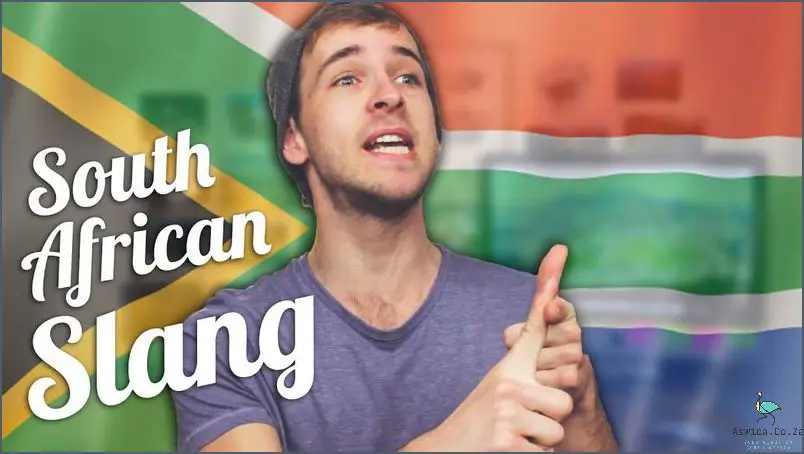
8. “Gesuip” – To drink alcohol excessively.
9. “Holla” – To call out to someone or to express excitement.
10. “Howzit” – A friendly greeting.
11. “Ja-nee”– A response indicating understanding and agreement.
12. “Kak” – Something that is annoying or bad.
13. “Kiff” – Awesome or cool.
14. “Lekker” – Delicious or great.
15. “Lekka” – Cool or awesome.
16. “Pap” – A type of porridge made of maize or cornmeal.
17. “Robot” – A traffic light.
18. “Sies” – To express shock, disbelief, or disgust.
19. “Skop” – To kick or hit.
20. “Tsotsi” – A gangster or criminal.
These are just a few examples of the many slang terms used in South Africa. With a little practice, you’ll soon be able to speak like a true South African!
Conclusion
South African slang is a very colorful way of speaking that is unique to the country. It is a mix of English, Afrikaans, and other African languages, and is often very informal. There are many different words and phrases that are used in South African slang, and it can be difficult to understand for people who are not familiar with it. However, it is also a very fun and interesting way of speaking, and it can be a great way to connect with locals when traveling to South Africa.

